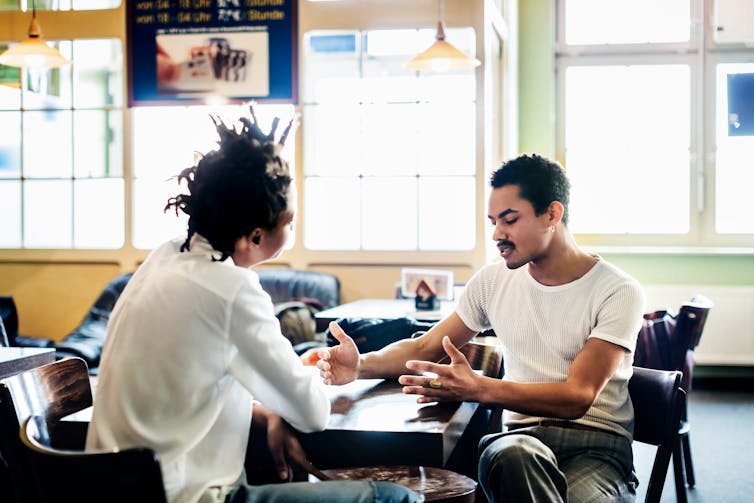Political chasms, wars, oppression … it’s easy to feel hopeless and helpless watching these dark forces play out. Could any of us ever really make a meaningful difference in the face of so much devastation?
Given the scale of the world’s problems, it might feel like the small acts of human connection and solidarity that you do have control over are like putting Band-Aids on bullet wounds. It can feel naive to imagine that small acts could make any global difference.
As a psychologist, human connection researcher and audience member, I was inspired to hear musician Hozier offer a counterpoint at a performance this year. “The little acts of love and solidarity that we offer each other can have powerful impact … ” he told the crowd. “I believe the core of people on the whole is good – I genuinely do. I’ll die on that hill.”
I’m happy to report that the science agrees with him.
Research shows that individual acts of kindness and connection can have a real impact on global change when these acts are collective. This is true at multiple levels: between individuals, between people and institutions, and between cultures.
This relational micro-activism is a powerful force for change – and serves as an antidote to hopelessness because unlike global-scale issues, these small acts are within individuals’ control.

A personal connection makes you more willing to find common ground.
Hinterhaus Productions/DigitalVision via Getty Images
Abstract becomes real through relationships
Theoretically, the idea that small, interpersonal acts have large-scale impact is explained by what psychologists call cognitive dissonance: the discomfort you feel when your actions and beliefs don’t line up.
For example, imagine two people who like each other. One believes that fighting climate change is crucial, and the other believes that climate change is a political ruse. Cognitive dissonance occurs: They like each other, but they disagree. People crave cognitive balance, so the more these two like each other, the more motivated they will be to hear each other out.
According to this model, then, the more you strengthen your relationships through acts of connection, the more likely you’ll be to empathize with those other individual perspectives. When these efforts are collective, they can increase understanding, compassion and community in society at large. Issues like war and oppression can feel overwhelming and abstract, but the abstract becomes real when you connect to someone you care about.
So, does this theory hold up when it comes to real-world data?
Small acts of connection shift attitudes
Numerous studies support the power of individual acts of connection to drive larger-scale change.
For instance, researchers studying the political divide in the U.S. found that participants self-identifying as Democrats or Republicans “didn’t like” people in the other group largely due to



